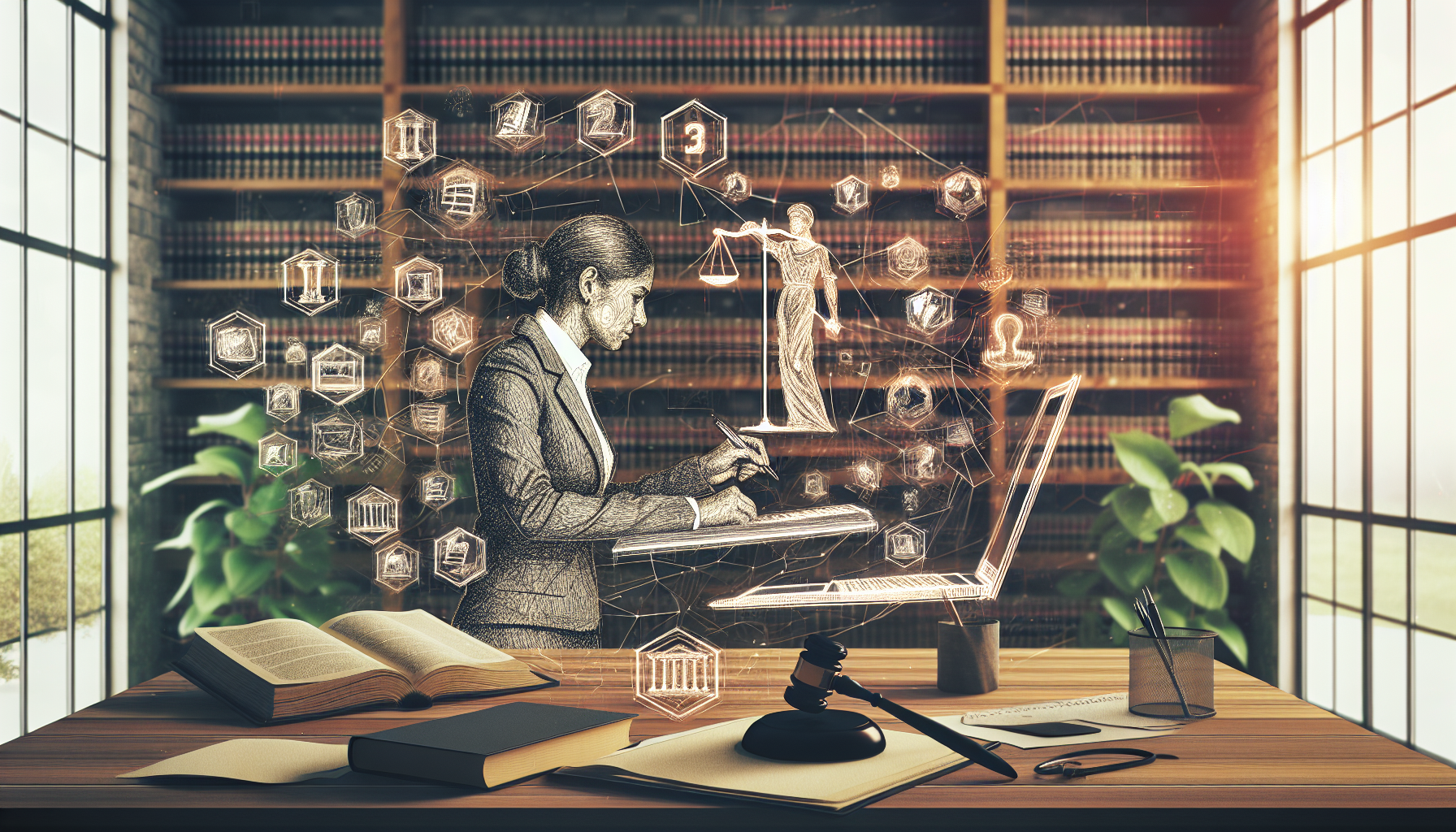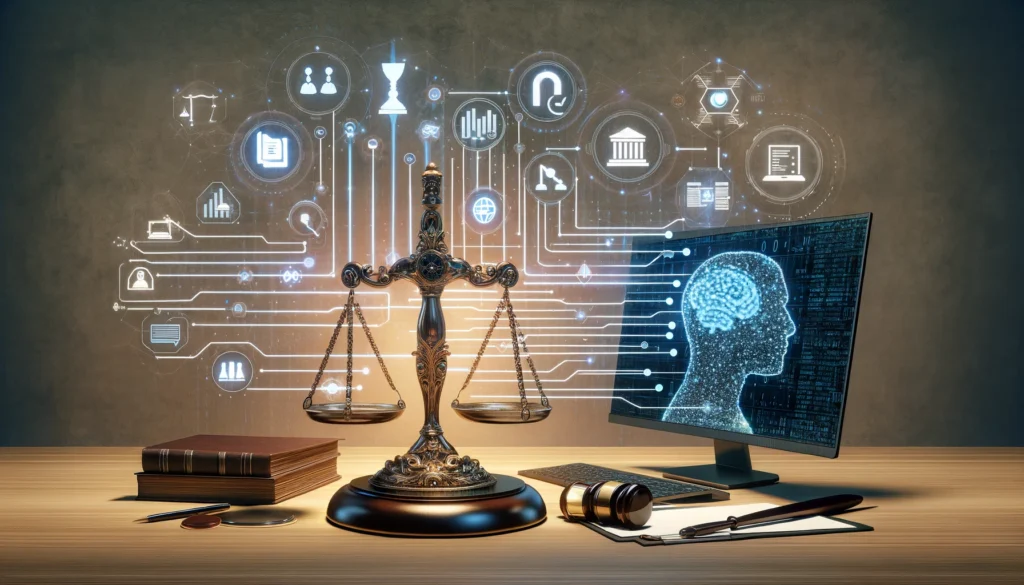
Setting the Stage: Reimagining Paralegal Efficiency with AI
Corporate divestitures are complex and pivotal events, involving the meticulous separation of business units, assets, and legal obligations. Paralegals play an essential role in orchestrating these transactions, often delving into extensive document review, due diligence, and communication tasks. Given the sheer volume and intricacy of their responsibilities, leveraging artificial intelligence (AI) to augment their efficiency is not just advantageous but essential. Welcome to a transformative era where AI, particularly tools like ChatGPT, promises to redefine paralegal workflows.
As AI becomes more integrated into legal practices, understanding how to harness its full potential is critical for maximizing productivity and accuracy.
Demystifying ChatGPT: A Paralegal’s New Best Friend
At the forefront of AI innovation is ChatGPT, a sophisticated language model developed by OpenAI. Encompassing vast swathes of knowledge and language comprehension, tools like ChatGPT and other large language models (LLMs) are revolutionizing the legal domain. They excel in natural language understanding and generation, offering valuable assistance in areas traditionally dominated by human labor.
For paralegals, ChatGPT provides:
- Expedited document review and summarization
- Automated generation of due diligence checklists
- Efficient legal research and precedent retrieval
- Accurate drafts for client and stakeholder communication
By integrating ChatGPT, paralegals can navigate the labyrinth of corporate divestitures with unprecedented ease, ensuring that no critical detail is overlooked.
Understanding Corporate Divestitures: Quick Recap
Corporate divestitures involve the strategic selling off of business units, subsidiaries, or other significant assets. Key elements include:
- Thorough due diligence to ensure all financial and operational facets are transparent
- Negotiation and drafting of sale agreements
- Regulatory compliance
- Stakeholder communication
Common challenges include managing extensive documentation and meeting tight timelines. Paralegals shoulder these responsibilities, which often lead to significant pain points due to manual data handling and coordination.
Now, let’s explore how AI can alleviate these challenges, starting with crafting precise queries.
Prompting Precision: Crafting the Perfect Query
Clear and specific prompts are the linchpins of effective AI usage. Vague or poorly constructed prompts can yield irrelevant or incomplete responses. For paralegals, mastering the art of querying ChatGPT can dramatically streamline various tasks related to divestitures.
Initial Document Review and Indexing
Example Prompt:
“Review the attached asset purchase agreement and highlight key clauses related to termination, confidentiality, and indemnification. Provide a summary for each clause.”
Due Diligence Checklists
Example Prompt:
“Generate a due diligence checklist for the divestiture of a subsidiary in the manufacturing sector. Include items related to financials, employee contracts, intellectual property, and regulatory compliance.”
Legal Research and Precedent Gathering
Example Prompt:
“Find relevant case law and legal precedents related to non-compete clauses in the context of corporate divestitures. Summarize findings with citations.”
Communication Drafts for Clients and Stakeholders
Example Prompt:
“Draft an email to a client informing them of the next steps in the divestiture process, including key dates, required documentation, and a summary of the agreed terms.”
Having grasped the significance of precise prompts, we can now delve into how ChatGPT automates document analysis.
Automating Analysis: Leveraging AI for Document Review
ChatGPT’s capability to swiftly review and summarize legal documents is a game-changer for paralegals mired in voluminous paperwork. Utilizing specific instructions, ChatGPT can sift through contracts, identifying pivotal clauses and summarizing them concisely.
Techniques for leveraging AI include:
- Uploading documents and requesting summaries of critical sections
- Identifying discrepancies or inconsistencies across multiple documents
- Generating comprehensive overviews based on specific legal criteria
This automation not only saves time but enhances accuracy, elevating the overall quality of document review processes.
Next, we examine how AI simplifies due diligence efforts.
Streamlined Due Diligence: Reducing Manual Workload
Due diligence is a cornerstone activity in divestitures, encompassing a wide range of tasks that are often repetitive and data-intensive. ChatGPT excels in creating and managing due diligence checklists, cross-referencing data, and identifying potential red flags.
By inputting specific criteria, paralegals can efficiently:
- Automate checklist generation tailored to industry-specific needs
- Cross-check information against regulatory standards and previous transactions
- Highlight inconsistencies or items requiring further investigation
With AI shouldering the burden of routine checks, paralegals can focus on more intricate aspects of the divestiture process.
Moreover, legal research becomes significantly more accessible, as the next section elucidates.
Research Revolution: Rapid Access to Legal Precedents
Legal research is critical in ensuring that all actions during a divestiture are legally sound. ChatGPT assists by swiftly retrieving relevant case law and legal precedents, allowing paralegals to stay abreast of pertinent legal developments.
Effective research prompts might include:
“Identify case law related to liabilities assumed in the sale of healthcare businesses in the last decade. Summarize key rulings and their implications.”
To optimize results, paralegals should structure prompts to include:
- Specific legal issues or questions
- Relevant jurisdictions and timeframes
- Desired depth of the summary
By integrating AI into legal research, paralegals can access comprehensive information promptly, ensuring robust legal foundations for all divestiture activities.
Additionally, drafting and communication tasks can benefit immensely from AI support, as we explore next.
Effective Drafting and Communication: AI-Enhanced Correspondence
Accurate and professional communication is paramount in legal practices. ChatGPT aids paralegals in crafting emails, memos, and other legal communications with enhanced clarity and precision.
Examples include:
- Drafting client updates with concise explanations of progress and action items
- Preparing stakeholder memos summarizing transaction details
- Creating internal briefs detailing specific legal points or updates
This ensures that all communication is not only coherent but adheres to legal standards and professional etiquette.
However, AI usage must be tempered with an understanding of its ethical boundaries and limitations.
Ethical Considerations and Limitations of AI
While AI offers numerous benefits, it’s crucial to recognize its limitations and ethical implications. Paralegals must ensure the secure and confidential use of AI tools, safeguarding sensitive client information.
Key considerations include:
- Avoiding reliance on AI for final legal opinions or advice
- Regularly validating AI-generated data and outputs with human oversight
- Ensuring compliance with data privacy laws and regulations
By maintaining these practices, paralegals can ethically integrate AI into their workflows, maximizing its utility while mitigating risks.
In conclusion, the transformation AI brings to paralegal practices is profound, as summarized next.
Conclusion: Embracing Innovation for Enhanced Productivity
Harnessing AI tools like ChatGPT can significantly enhance paralegal productivity, particularly in labor-intensive processes like corporate divestitures. The key benefits include streamlined document review, efficient due diligence, rapid legal research, and effective communication drafting.
Encouraging proactive adoption and continuous learning about AI capabilities will empower paralegals to navigate the complexities of their roles with greater confidence and precision. Embracing these innovations ensures a future where legal practices are both more efficient and dynamic.


